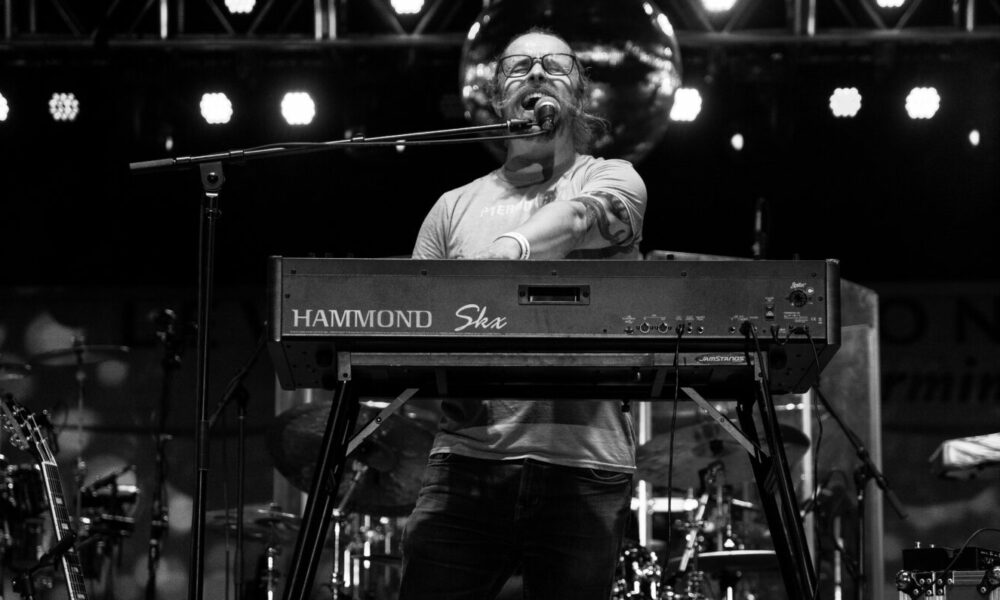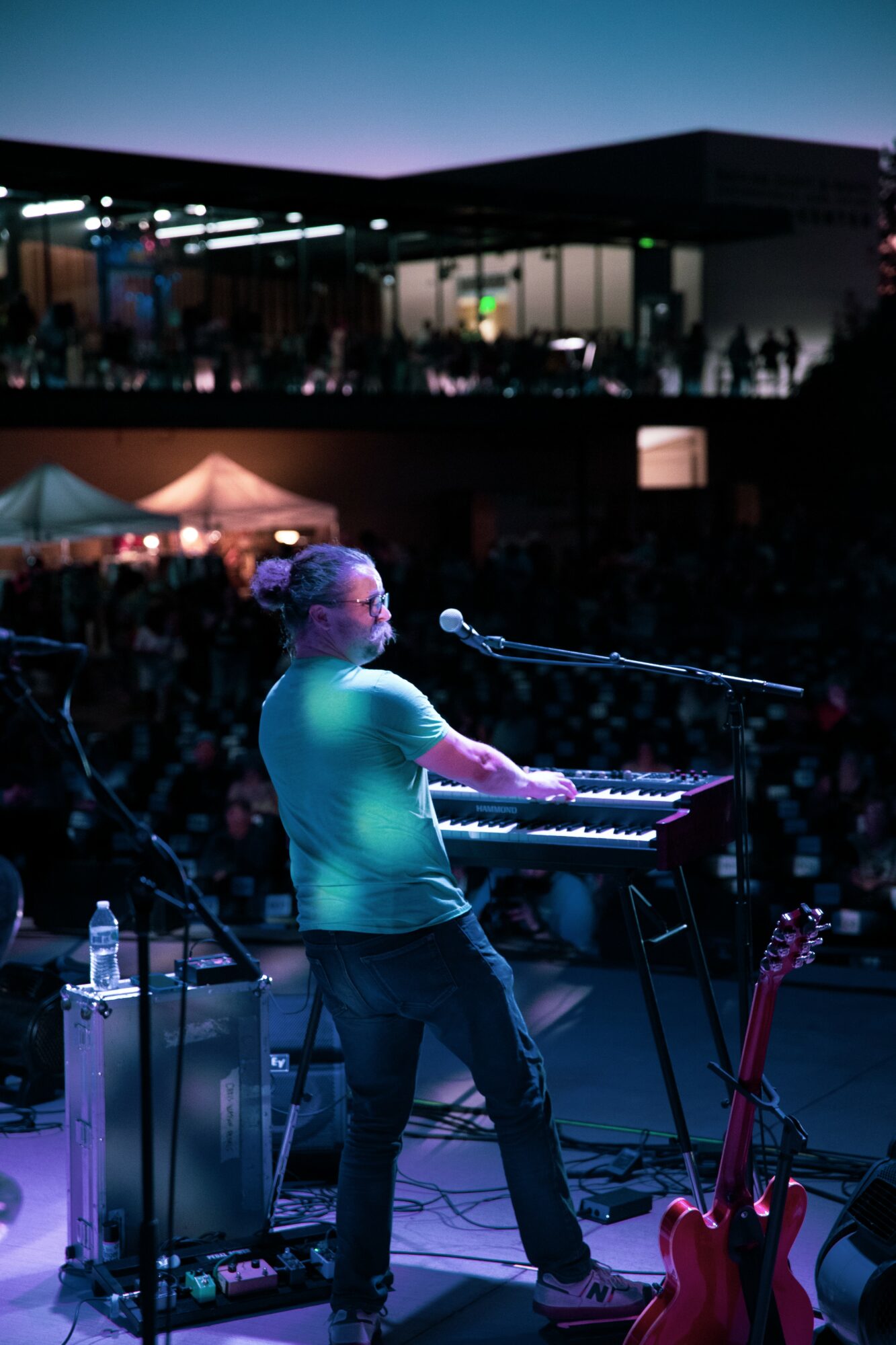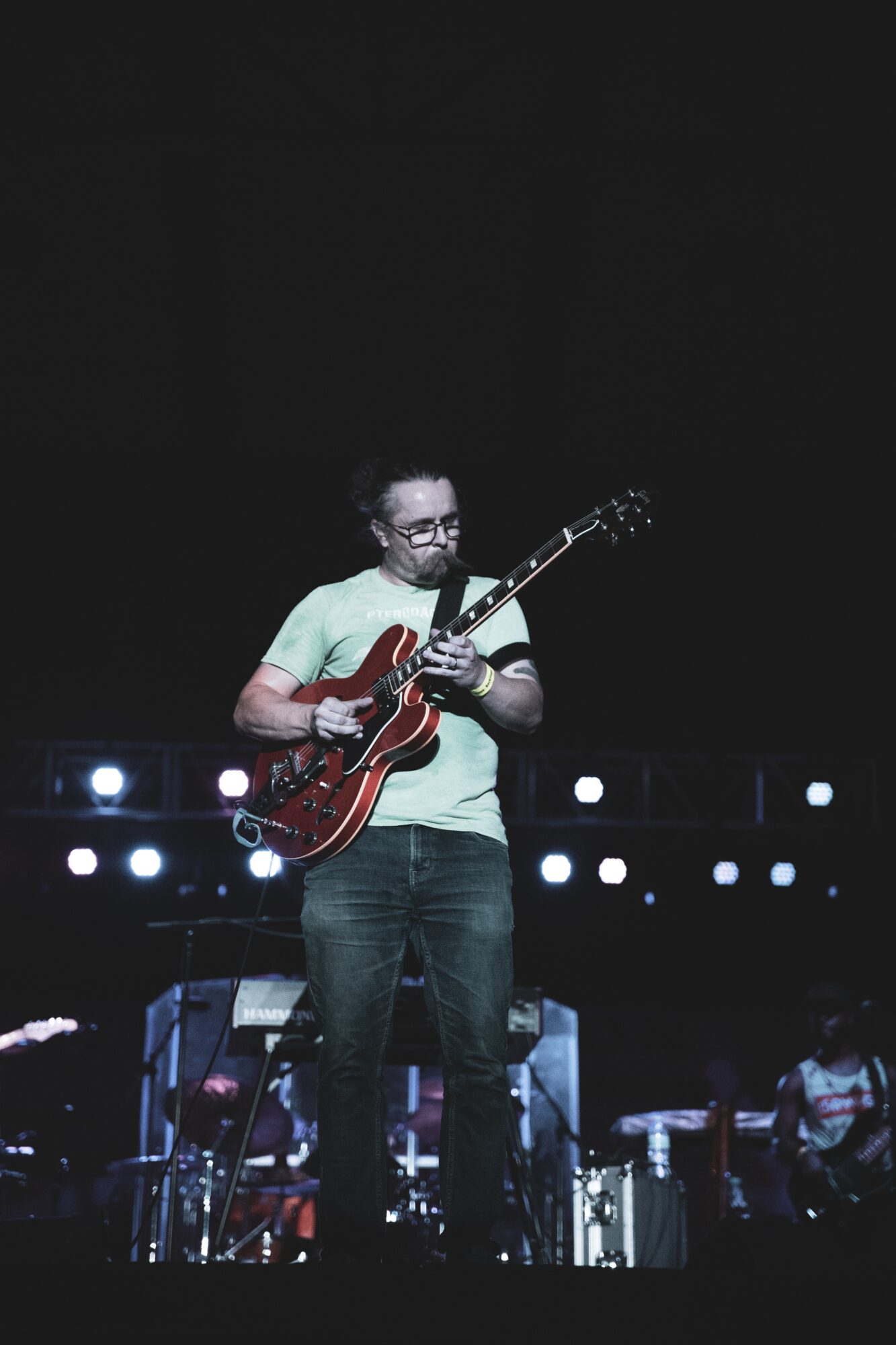

Today we’d like to introduce you to Chris Watson.
Hi Chris, we’re thrilled to have a chance to learn your story today. So, before we get into specifics, maybe you can briefly walk us through how you got to where you are today.
I started playing piano around 5 and guitar around 12. My father played as a hobby, so there were various instruments in the house. Once I took a liking to the guitar, he showed me everything he knew, and I soaked it up like a sponge. When I was around 16, and as I became more proficient on these various instruments, now including organ, he began taking me out to local blues jams to get some stage time and meet other musicians; an invaluable crash course in playing with other humans. It was clear by then that I had the bug and I was learning everything I could get my hands on. Mostly gravitating toward traditional blues, jazz, and classic soul.
I started my first full time band at around the age of 20, and with some help was gigging all over the state with a little guitar-driven trio. After a few years of that, and with a couple of original records under my belt, I saw my first taste of actual touring which lead me to Europe to play some festivals. Through the years, I began adding other instruments to the band, which culminated in a 9-piece effort with a full horn section. We recorded one studio and one live record like this, and within a few years that project landed safely back on the ground and it was put to bed.
That’s when I started my current project, “Retrophonics”. This began as a Tuesday night residency, as this was the only time the amazing players I wanted to hire were off the road and available. In its infancy, we were exclusively playing classic soul hits and some jazz standards that we liked to really mess with, but over time we developed a nice little following on Tuesdays. We decided to start playing some of the originals from my catalog, and then more people started showing up. It was at this time that we decided to start playing on the weekends, but this eliminated several of the band members who were too busy, so we changed the format to either a 4 piece, or an organ trio with me covering left-hand bass/organ/singing, and a drummer & guitarist accompanying.
To this day, we have been fortunate enough to open for and share stages with some incredible acts as a result of the smaller on-stage footprint, and the huge sound that is created by so few people.
Can you talk to us a bit about the challenges and lessons you’ve learned along the way? Looking back would you say it’s been easy or smooth in retrospect?
There are always struggles in the entertainment business, even when things are going incredibly well. When you live and die by the general public’s opinion of your art, there are inherent self-doubts that never leave your subconscious. On plenty of occasions, I have departed from what I thought was the right path as a result of flippant opinions from fans or friends. All the while I could not wait to get back on track and do the thing that I wanted to do in the first place. Once I came to this realization, I genuinely stopped caring about what anyone thinks about my product, and I take special care to make sure that the music or art I’m supplying to the world is a true and genuine representation of myself. This keeps me satiated in a way I had never been able to achieve previously.
I try to ask myself this question when I come under artistic scrutiny or self-doubt: If I weren’t doing this to make a living, is this still how I would be doing it? Or am I bending to some external pressure from a foreign entity that does not understand my history or my intended message.
Alright, so let’s switch gears a bit and talk business. What should we know about your work?
I have lived a bit of a double life as a professional musician in these last 17 years. On one hand, I am a creator, writer, performer of my own original thoughts and music. On the other hand, I am a professional auxiliary side man for hire. These are two sides of the same coin but require vastly different skill sets.
As a creator, I feel that I specialize in creating a moment in time during which people feel comfortable being themselves. My show is very improv-heavy, albeit within the boundaries that we have established ourselves night by night. This type of show creates a unique experience for every event. The people who come to see us regularly often tell me how much they enjoy coming and bringing friends because they get a truly individual experience at each show. I thrive on this open creativity and encourage the band members to do the same. I feel truly lucky that some of the higher caliber musicians choose to play with me regularly, and I attribute their choosing to play with me to the freedom of expression that is pushed to the forefront of every performance.
As a side man, I get many, many calls that are last minute as a sub for someone who cannot make it. In this setting, I am often provided with upwards of 3 hours’ worth of material to learn often within a week or two. My musical upbringing at jams and other improv settings has helped to cultivate my ear in such a way that I feel I can often anticipate where the songs are going based on the melody and whatnot. This makes it easy to put together charts that I will use on stage as a road map of guidelines that I can feel confident playing within during the show. Sometimes I won’t receive any material at all to study, and then I get to really have some fun and just react to what is happening around me!
I don’t necessarily feel that any of this sets me apart from anyone else. In fact, I would venture to say that there are plenty of players around DFW that may be better suited for whatever task I’m being given. I say this not to be discouraging or disparaging of myself, but to make sure that I never rest on my laurels as a musician or as a person. I am truly honored to get a call from anyone big or small who believes that I am the person that will step in and do a great job on their show/record. I do not take this position lightly and I will always show up prepared and ready to put my best foot forward, no matter the gig.
Can you talk to us a bit about the role of luck?
Good and bad luck is inherent in the entertainment business as well. In fact, I believe good luck is a huge catalyst to success whether we like it or not. There is no formula for success as a musician, you just have to calculate and make the moves that each individual believes is in the best interest of their career and goals.
I have had several things fall my direction that certainly could have gone another way, and I recognize those opportunities as times where I need to make sure I’m delivering what is expected of me. I believe this is the way I will continue to work and grow as a musician and a person and continue a career that has already given me 17 years of excitement and experiences that will last me two lifetimes.
Bad luck is just that, bad luck. You can’t take any of it personally, because it never is. Letting go of disappointment is crucial, whether or not you had control of the situation. Dwelling on past failures, or not getting a call for a gig you auditioned for, or being turned down by a venue, all of that is stifling and detrimental to success. Let. It. Go.
Contact Info:
- Instagram: Instagram.com/chriswatsonmusic
- Youtube: https://www.youtube.com/channel/UCu8VksR7vF-FC1MkezNxdWg





Image Credits
Jonathan Terrell
Todd Treadway
Andrew Sherman










